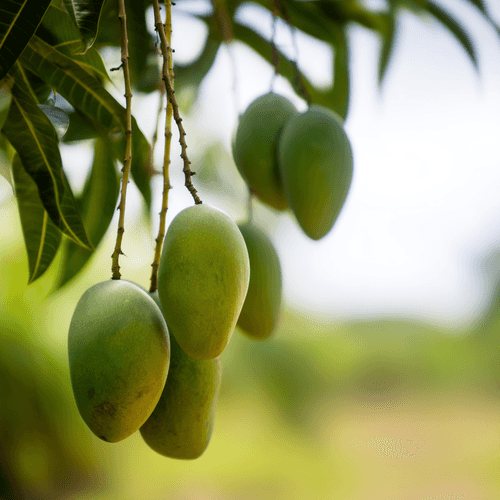Did you know ?
- 1 Mango is known as the "king of fruits" in many cultures.
- 2 India produces nearly half of the world's mango supply.
- 3 Mango trees can live and bear fruit for over 100 years.

The mango is a tropical stone fruit prized for its juicy flesh, sweet aroma, and vibrant color. Rich in vitamins, antioxidants, and fiber, mangoes are enjoyed fresh, dried, or in a variety of sweet and savory dishes around the world.
Did you know ?
View other Tropical fruits
Nutrition
| Calories | 135 kcal |
| Proteins | 1.1g |
| Carbohydrates | 30g |
| of which sugars | 26g |
| Fiber | 3.5g |
| Fats | 0.6g |
Ripeness
Selection
Storage and ripening
If you bought unripe mangoes, here's how to speed up the process :
Health
Origin
Mangoes have been cultivated for over 4,000 years, originating in South Asia. They spread to Southeast Asia, Africa, and the Americas through trade and colonization. Today, mangoes are grown in tropical and subtropical regions worldwide, with India, China, Thailand, and Mexico as top producers.
Recipes
Gallery
There is no images yet. Submit one now to contribute to the gallery !
F.A.Q
Warnings
Similar tropical fruit with orange flesh but milder flavor and black seeds.
Much larger, with yellow pods and a distinct, sweet aroma.
Orange color and sweet taste, but lacks mango’s tropical aroma and has a different texture.